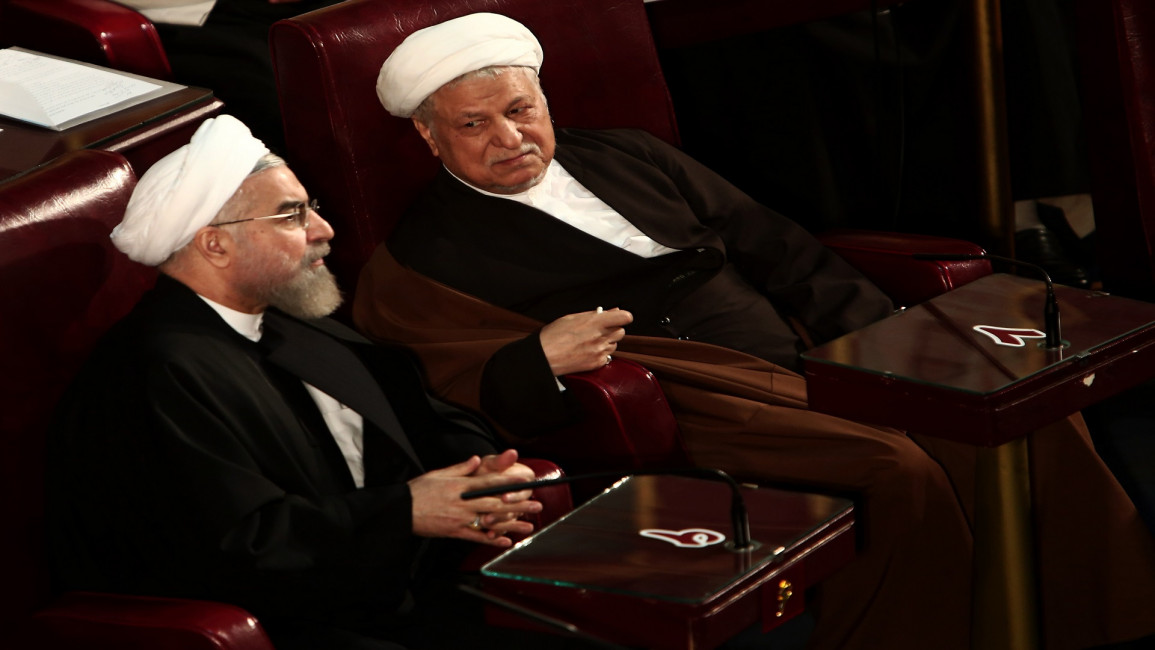
Should Iran's Islamic Assembly vote on the nuclear deal?
Now that the nuclear deal has finally been reached between P5+1 and Iran, its fate largely depends on two legislative bodies: the US Congress and Iran’s Council of Islamic Assembly (Majles).
The former will vote on the deal next month. But it is yet to be known whether the latter will do anything about it other than loud debates.
In the first two weeks after the JCPOA (Joint Comprehensive Plan of Action) was signed, the debate in Iran's political circles shifted from the red lines set for the diplomatic team to whether the Majles should interfere in approving the agreement.
The Majles Should Vote
Iran’s Majles approved a bill, sponsored by the Chairman of the Parliament’s National Security and Foreign Policy Committee, that sets out three criteria that must be met in any deal reached with the world powers: lifting all sanctions immediately, limiting international access to documents, scientists and military sites, and accepting no limit on Iran's right to nuclear research.
This bill was approved by 213 of the country’s 290 MPs. Also, it clearly states that the agreement should be presented to the Majles to be reviewed based on the Constitution and the statutory laws.
In addition, Article 77 of the Constitution requires "international treaties, protocols, contracts, and agreements" to be approved by the Islamic Consultative Assembly.
Ahmad Tavakkoli, a Tehran MP, believes that the administration should submit this deal to the Majles as a bill. Ali Motahhari, another influential figure in the Majles, thinks the National Security Council has no monopoly on reviewing Iran’s nuclear agreement.
Proponents of a Majles vote argue that Iran's Supreme Leader Ali Khamenei agreed on the involvement of the Majles when he said, "whether this agreement is passed or rejected through legal channels, the diplomats are appreciated; of course, for ratification of this agreement there is a path that should be followed".
Passing the deal without the Majles
Right after the Majles vote to "Requiring the Administration to Protect Nuclear Achievements Bill" on June 23 of this year, the spokesperson of Rouhani's administration declared that this bill is against Iran’s Constitution.
He mentioned Article 176 that says the National Security Council of the country "determine the defense and national security policies within the framework of general policies determined by the Leader". After the deal was reached in July, he said the Majles won't be reviewing the nuclear deal.
| Proponents of a Majles vote argue that Iran's Supreme Leader Ali Khamenei agreed on the involvement of the Majles. |
Rouhani’s legal advisor, Elham Aminzadeh, took another turn and said that "th National Security Council and the legal advisory group in the President’s office are reviewing whether it is expedient to send this deal to the Majles or not".
Ali Akbar Salehi, the head of Iran’s Atomic Energy Agency who was involved in the negotiations, confirmed Rouhani’s office position and offered a legal argument while reporting to Iran’s MPs: "The nuclear deal is not an agreement, convention or international treaty and it is called Joint Comprehensive Plan of Action… It needs no approval of Majles".
Against his previous position that the Majles should review the nuclear deal, Ali Larijani, the speaker of the parliament said that "the Majles should vote on International treaties, and in some cases, such as Resolution 598, the Majles did not interfere".
When the late Supreme Leader Ayatollah Khomeini accepted the U.N. Security Council’s Resolution 598, Iran-Iraq war ended in 1987.
The Majles is a semi-elected body with 290 members. On the other side, the National Security Council is an unelected body with a dozen members of Supreme Leader’s appointees, high ranking military officials, the heads of three branches of government, and some cabinet members.
It seems very convenient for any administration to make decisions in an unelected chamber rather than a 290-members semi-elected one. In this context, the nuclear deal has a chance to pass through one legislative body over the other.
What Will Happen to the Deal?
Proponents of a Majles vote include the conservative "Persistence Front" members (close to ex-President Ahmadinejad), military generals close to Khamenei, some elements of the security establishment.
| It seems very convenient for any administration to make decisions in an unelected chamber rather than a 290-members semi-elected one. |
On the other front, at least two heads of branches of government prefer that the National Security Council review the nuclear deal. Khamenei has not been explicit on this issue but has kept the door open for passing over the Majles.
Considering this arrangement, it is very unlikely that the Majles would interfere in this matter. If it does, it has no choice other than approving the deal.
Compared to Iran's hardliners from military figures to conservative politicians, the Majles is weak and marginal. During the last 12 years of nuclear negotiations and economic sanctions, the Majles did not have one hearing on these issues.
Having said that, it is highly probable that the deal's legitimacy will be swiftly institutionalised through the revision and approval of Iran’s National Security Council.
Majid Mohammadi is an Iranian-born academic, and the author of dozens of books in Persian and English on politics, arts and religion in Iran.
Opinions expressed in this article remain those of the author and do not necessarily represent those of al-Araby al-Jadeed, its editorial board or staff.





 Follow the Middle East's top stories in English at The New Arab on Google News
Follow the Middle East's top stories in English at The New Arab on Google News


